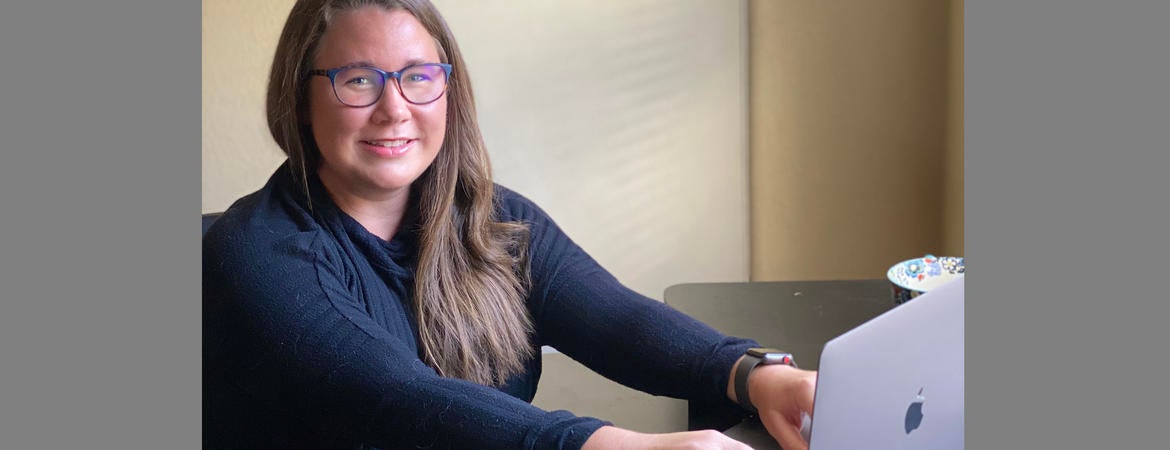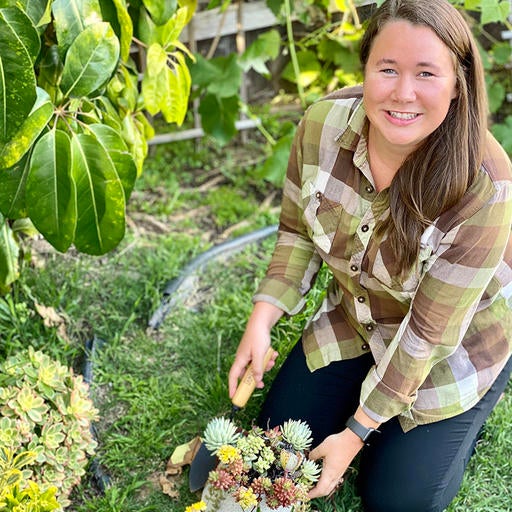
Megan Ledoux is a third-year doctoral candidate in the special education program. She is advised by Dr. Jan Blacher and works as a graduate student researcher in the SEARCH Family Autism Resource Center. In the following interview she shares how her research activities have been impacted by COVID-19, and what she’s been doing to maintain some semblance of work/life balance.
Where are you sheltering in place? I’m sheltering in place in my home in San Diego, CA with my fiancé and our two dogs. I feel so fortunate to be quarantined with loved ones!
What has been the biggest change to your daily life over the past few weeks? As for many others, all my courses, meetings, and research activities are now done remotely. I would say the biggest change in my daily life is no longer having a long commute. I used to commute over an hour and a half each way to UCR, so I’m definitely saving lots of time and gas!
Can you talk a little about some of your current projects/research, and how this has affected the way you approach these endeavors? As for many researchers, our research activities have been transitioned to remote participation when possible. Some of our current research projects were very easy to transition to remote participation. For example, I serve as the coordinator for a joint longitudinal project between UCR and UCLA, and this study already included a “remote participation” option (e.g., online questionnaires and a phone interview).
Other projects, however, have been a bit more challenging to transition. We currently see families to conduct screenings for autism spectrum disorder (ASD) at the SEARCH Center, and in light of COVID-19, we are developing a telehealth option to conduct these screenings remotely. The silver lining of developing a telehealth screening approach is that we can use this option even after COVID-19, especially for families who live far from UCR and experience other barriers to coming for an in-person appointment (e.g., transportation, time off work, childcare needs).

What are some things you have been doing to help you manage and stay on track? I’ve found a few hobbies and habits that have been really helpful during quarantine. In particular, I’ve started my mornings by cleaning and tidying up the house. That way, I have a clean workspace throughout the day. I’ve also scheduled regular meetings with colleagues to work on our research projects. These meetings help us stay accountable to get our work done, and provide a built-in support network so we can all check-in with each other.
Do you have any tips for students or peers who may be struggling? For those students and peers who may be struggling, I would like to say: First, you are definitely not alone. This is a very difficult, unprecedented time and other students are likely struggling with similar problems. Second, reach out for support. Your peers, colleagues, and faculty are here to support you, so do not hesitate to reach out and ask for help. Lastly, take breaks when you need to. It’s okay to have a less productive day; it’s okay to take time to regroup. Try not to be too hard on yourself. (I’m working on following these words of advice myself!)
How do you de-stress during this time? I’ve been trying to focus on the positives such as having more time to catch up with loved ones over video chat, enjoying the sunshine in my backyard, and of course, binging TV shows that I would not normally have time to watch. I’ve also been exercising, taking the dogs for walks, gardening, or going on a run. Fresh air certainly helps!